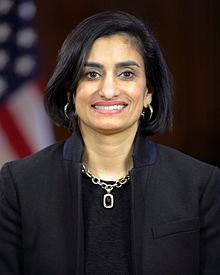Diabetes Admissions Up in PA
Hospital admissions for diabetes rose 13 percent in Pennsylvania between 2000 and 2016. While admissions among older Pennsylvanians declined, the rate for younger people under the age of 45 increased 38 percent over that period of time.
 Diabetes admissions in Pennsylvania resulted in $205 million in payments to hospitals in 2016, but according to the Pennsylvania Health Care Cost Containment Council, about 86 percent of 2016 adult admissions could have been prevented with more timely and appropriate care and disease management.
Diabetes admissions in Pennsylvania resulted in $205 million in payments to hospitals in 2016, but according to the Pennsylvania Health Care Cost Containment Council, about 86 percent of 2016 adult admissions could have been prevented with more timely and appropriate care and disease management.
Learn more about the prevalence of diabetes admissions in Pennsylvania in the new PHC4 research brief
“Pennsylvania Hospital Admissions for Diabetes,” which can be found here.
 Included in the November edition are articles about:
Included in the November edition are articles about: The 340B program is an essential source of resources for private Pennsylvania safety-net hospitals and many stand to lose hundreds of thousands of dollars, or even millions of dollars a year, if the payment cut is not reversed.
The 340B program is an essential source of resources for private Pennsylvania safety-net hospitals and many stand to lose hundreds of thousands of dollars, or even millions of dollars a year, if the payment cut is not reversed. An early November bulletin from CMS, however, clarifies that this approach is still permissible, which is good news for Pennsylvania safety-net hospitals and SNAP members hoping to benefit from the state’s hospital assessment.
An early November bulletin from CMS, however, clarifies that this approach is still permissible, which is good news for Pennsylvania safety-net hospitals and SNAP members hoping to benefit from the state’s hospital assessment. According to the news release, those changes include:
According to the news release, those changes include: Community HealthChoices is a new state program of managed long-term services and supports for Pennsylvanians over the age of 55 who are eligible for both Medicare and Medicaid.
Community HealthChoices is a new state program of managed long-term services and supports for Pennsylvanians over the age of 55 who are eligible for both Medicare and Medicaid.
 Pennsylvania Governor Tom Wolf has vetoed a bill that included a requirement that certain Medicaid recipients either work or search for work.
Pennsylvania Governor Tom Wolf has vetoed a bill that included a requirement that certain Medicaid recipients either work or search for work. Pennsylvania has safety-net hospitals in both urban and rural areas and many of the communities they serve have access-to-care problems that might benefit from greater access to telehealth services.
Pennsylvania has safety-net hospitals in both urban and rural areas and many of the communities they serve have access-to-care problems that might benefit from greater access to telehealth services.